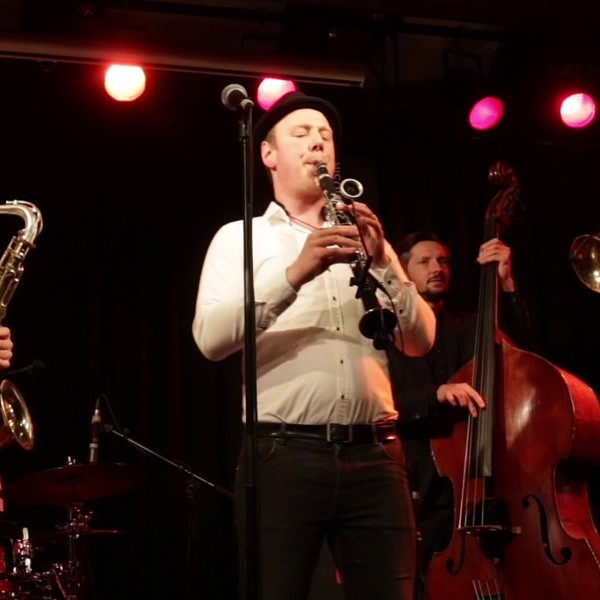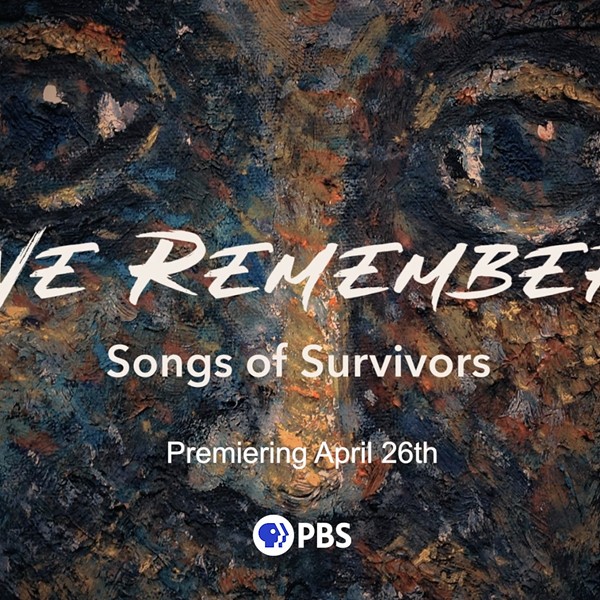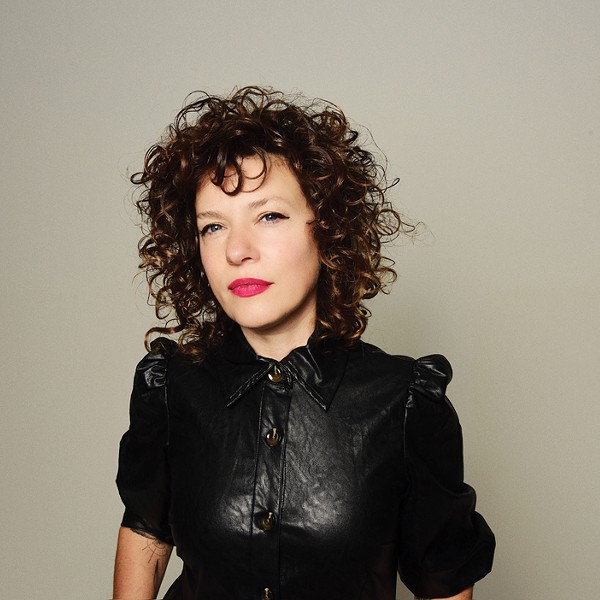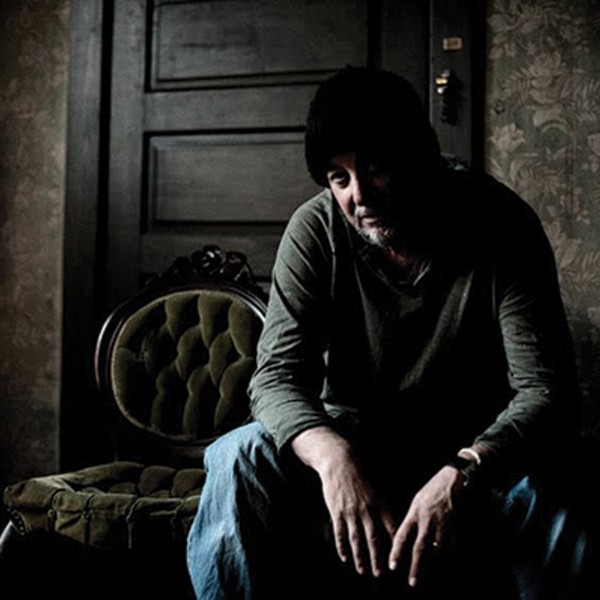A nine-year-old boy goes to a swimming pool Snack Shack and orders a Slim Jim. No biggie. Unless, of course, he’s an Orthodox Jew.
Auslander grew up in Monsey, an ultra-orthodox enclave in Rockland County. He’s a frequent contributor to NPR’s “This American Life,” reading short fiction from his collection Beware of God (Picador, 2006) and essays about an upbringing he likens to that of a veal calf. From Foreskin’s Lament: “The people of Monsey were terrified of God, and they taught me to be terrified of Him, too—they taught me about a woman named Sarah who would giggle, so He made her barren; about a man named Job who was sad and asked,—Why?, so God came down to Earth, grabbed Job by the collar, and howled,—Who the fuck do you think you are?”
If this raging authority figure was omnipresent, he also came in a scaled-down model for home use: Auslander’s punitive, hot-tempered father. The family dynamic was also burdened by the mysterious death of a two-year-old son, whom young Shalom sometimes envied for getting out early.
Auslander got out too, at least physically; he still fears God’s wrath so acutely that his preternaturally understanding wife Orli calls him a victim of “theological abuse.” Though the poolside Slim Jim was a gateway drug to other rebellions (shoplifting, pornography, pot), he didn’t escape Orthodoxy without a fight. Early in their marriage, he and Orli moved to a community in New Jersey where they kept kosher and observed Sabbath prohibitions against work or driving, once going so far as to walk 14 miles to a Rangers game at Madison Square Garden. They now live outside Woodstock with their two young sons, Paix and Lux, and two much-walked dogs.
It’s easy to spot Auslander at Bread Alone in Woodstock—he’s bent over a notebook, frowning. He’s just come from the writing office he rented on Tinker Street a few weeks after Paix was born, where he’s been wrestling with a novel tentatively titled Leopold Against the World. “It’s about a genocide, but funny,” he says. “It’s really about the family it’s happening to. It’s not the first genocide they’ve been through. They have terrible luck.”
Today’s wrestling match did not go well. “I’ve basically wasted two years,” he says grimly. “I’m throwing it out.” Asked if he’s really abandoning the novel, or just in a cycle of beating himself up, he says without missing a beat, “That’s a 40-year cycle.”
Auslander’s metaphors for his creative process are grueling. “I’ve spent the last year and a half wielding a scalpel, cutting through bone, wincing as I reach inside and fiddle around with the organs,” he says. “It’s Kafka’s Hunger Artist—you lock yourself in a cage and starve to death. That’s the job. You perform open-heart surgery on yourself.”
What fun.
Auslander is wearing a dark shirt and jeans with motorcycle boots—he likes riding on racetracks. His hair is cut short and his brows knit over dark eyes with unusually long lashes—it’s easy to picture him as a bright-eyed, bewildered boy in a yarmulke who learned to protect himself by being funny. He heads into an interview wielding a smart-ass, outrageous persona he gradually sheds, revealing a thoughtful, sensitive man who reveres Samuel Beckett and Voltaire’s Candide, and who isn’t afraid to say, “What makes me happy? My sons—seeing them together. And I couldn’t go more than a few days without taking long walks with my wife, just talking together. Book tours are hell on me. I love solitude, but not from her.”
Is Shalom Auslander getting, God forbid, mellow? Not quite. Asked how he feels when he sees Orthodox Jewish families at Thruway rest stops, he deadpans, “That’s why I keep a handgun in my glove compartment. I try to stay as far away from Rockland County as possible.” When a New York Times reporter wanted to take him on a roots cruise to his old school and shul on Rosh Hashana, Auslander told him, “Okay, but we’re taking your car, not mine. I know these people. They throw rocks through windshields.”
These days, Auslander’s young family celebrates Rosh Hashana each year with a distinctly unorthodox ritual: picking apples at the Stone Ridge Orchard and inviting friends over to cook. “I often forget about holidays,” Auslander reports with some pride. “My shrink reminded me. He said, ‘Happy New Year.’ He’s just trying to keep me crazy to drum up work for himself.”
Therapy has been a lifesaver. Auslander calls it “my new religion” and says of his therapist, “He’s wise and centered, two things I’m not.” His therapist also urged him to start writing, at first in a journal, then for publication. “Before that I just ranted and raved, often aloud. Every job I ever worked in, I was asked to leave.”
He does have a talent for burning his bridges. While writing Foreskin’s Lament, Auslander severed all ties with his family, becoming a very black sheep to the faithful herd. He’s often accused of being a “self-hating Jew,” but that misses the point; his beef is not with Judaism but with fanaticism, and the notion that “God-fearing” should be a compliment.
“I get pegged as dark, angry, whatever—all I’m writing about is, why does it have to hurt?” Auslander says. In an interview with Bookslut, he observes: “It would be a much better religion—any of them—if it was ‘We shall not kill.’ Including Himself in the commandment. The way we have it now, it’s more like, ‘You don’t kill, I’ll do whatever the fuck I need to.’”
Auslander is raising his sons to know that parental love doesn’t depend on whether or not they eat cheeseburgers, but sometimes the “anything goes” spirit of his new hometown makes him squirm. “I have—no surprise here—a love/hate relationship with Woodstock. Tuesday I want to burn it to the ground. Then Wednesday we go to the Farmers’ Market and see lots of people we like, walking around, playing music. We go to the playground, my son is happy, contented, safe—I wouldn’t trade it for anything.”
Shalom Auslander will appear at the Woodstock Writers Festival (see sidebar) on Sunday, February 14 at noon with John Bowers, Dani Shapiro, Marion Winik, and panel host Laura Shaine Cunningham.

















